Ever get that uneasy feeling that someone might be keeping an eye on you? Maybe you’ve noticed the same car parked near your street, or you’ve seen officers around more often than usual. It can be stressful not knowing if it’s just a coincidence or something more serious. That’s probably why you’re here, searching for signs that cops are watching your house.
In this post, we’ll break down the common red flags that could mean law enforcement is paying closer attention to your home. You’ll learn what to look out for, why it might be happening, and what steps you can take if you suspect surveillance. By the end, you’ll have a clearer idea of what’s going on and how to handle it.
People Are Following You
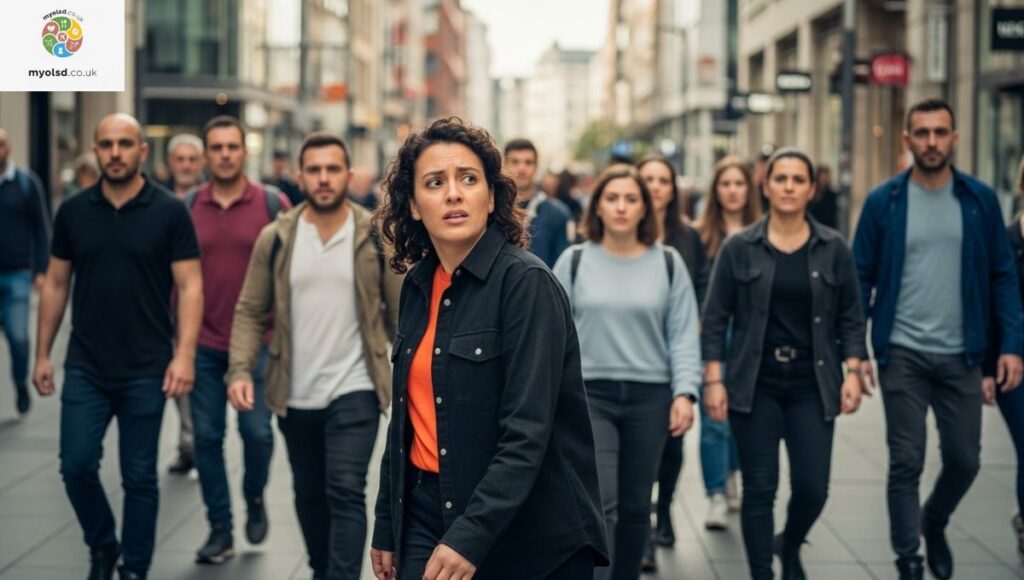
One of the clearest red flags is when you feel like you’re being followed. This could be someone walking behind you regularly, an unfamiliar person showing up in public spaces you frequent, or even repeated “coincidences” where the same face appears around your daily routine.
Police surveillance operations sometimes involve shadowing suspects to observe movements and interactions. If this becomes a pattern, it could be more than a coincidence. Always document what you see and trust your instincts when behavior doesn’t feel right.
Cars Driving Past Your Home or Work
If you notice the same unmarked vehicle passing your home or workplace repeatedly, it may not just be a curious neighbor. Law enforcement often relies on parked vehicles or slow-driving cars to keep tabs on suspects. Unlike burglars who might scout property, police are usually consistent and subtle in their methods.
Unfamiliar cars with tinted windows, out-of-state license plates, or vehicles that linger without reason are worth paying attention to. While it doesn’t always mean surveillance, keeping notes on suspicious cars driving past can help if you later need attorney assistance.
Police Contact
Direct police contact is one of the most obvious indicators. This could be officers visiting your home, calling you in for questioning, or even casually asking neighbors about your activities. While not all contact means you’re under surveillance, repeated visits or unusual inquiries are red flag signs.
If police show interest in your daily routine or personal matters, it’s smart to remain calm, avoid incriminating statements, and exercise your right to remain silent. An attorney can help you navigate these situations without worsening your legal situation.
Suspicious Social Media Activity
Surveillance today isn’t limited to physical presence. Police and investigators often use digital surveillance methods like monitoring social media accounts. This could include fake profiles, strange friend requests, or excessive interest in your online posts.
If you start receiving suspicious messages or notice strangers commenting or asking personal questions online, be cautious. Oversharing about your location, vacation plans, or financial situation can make surveillance easier. Protect yourself by adjusting privacy settings and limiting what you share publicly.
What Do I Do if I Believe I’m Under Police Surveillance?
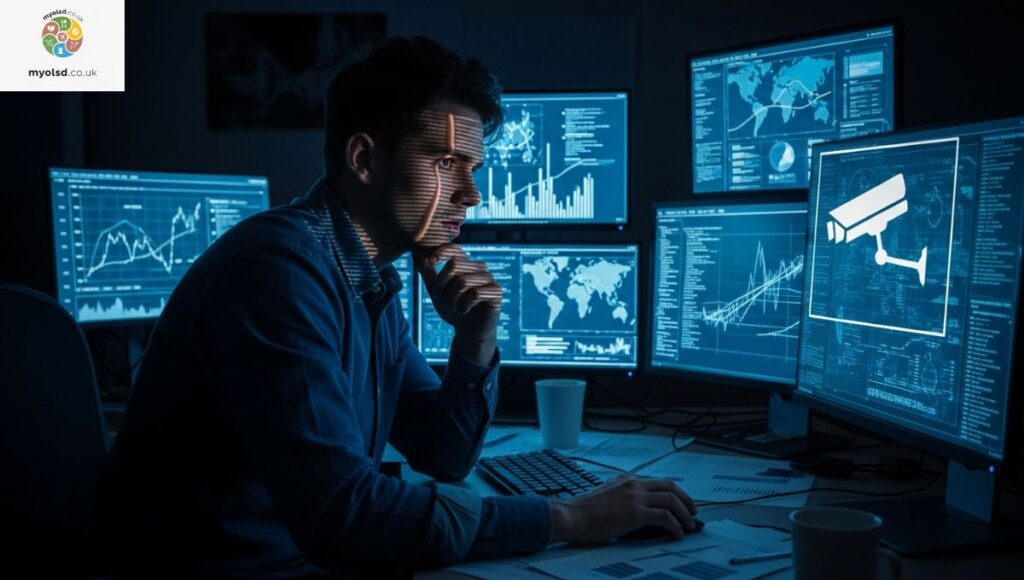
First, don’t panic. Surveillance doesn’t always mean you’re guilty it may be part of a broader investigation strategy. Stay aware of suspicious behavior around your property, keep records of anything unusual, and avoid drastic changes to your daily activities that could draw more attention.
Second, protect your legal rights. Avoid making incriminating statements, do not consent to warrantless searches, and don’t engage in suspicious conversations with strangers. If you feel unsafe or confused about your situation, contacting a criminal defense lawyer is the best step forward.
How to Protect Your Privacy if You Are Being Surveilled by the Police
Start by safeguarding your home. Use professional home security systems, motion lights, and cameras to record suspicious movement or unfamiliar service workers. Be wary of flyers, chalk marks, or light bulb tampering around your property these can be surveillance or burglary warning signs.
Digitally, protect your privacy by limiting what you share online and being careful about friend requests. Avoid discussing legal issues on social media and never share sensitive details like travel plans. A strong awareness of both offline and online surveillance signs can help you protect yourself and your family.
Contact Our Criminal Defense Attorneys for Help if You Notice Police Surveillance
If you believe you’re under investigation, it’s crucial to act quickly. Criminal defense attorneys can help you understand whether law enforcement monitoring is lawful, and how to handle police contact without jeopardizing your rights.
Many law offices offer a free consultation or free case evaluation so you can explain your concerns and receive guidance on next steps. Skilled lawyers know how to identify surveillance methods, defend against criminal charges, and ensure your constitutional rights are respected.
Our Awards & Recognitions
Our firm has been recognized for outstanding defense strategies and dedicated client service. From protecting privacy rights to successfully defending clients facing serious allegations, we’ve built a reputation for aggressive, reliable legal representation.
With years of experience handling cases involving surveillance evidence, police tactics, and criminal investigations, we are trusted by clients across the region. Choosing an award-winning team ensures you’re not navigating these challenges alone.
Read more Article:What Is the Color That Represents Friendship?
Do the Police Have to Advise You That You Are Being Investigated?
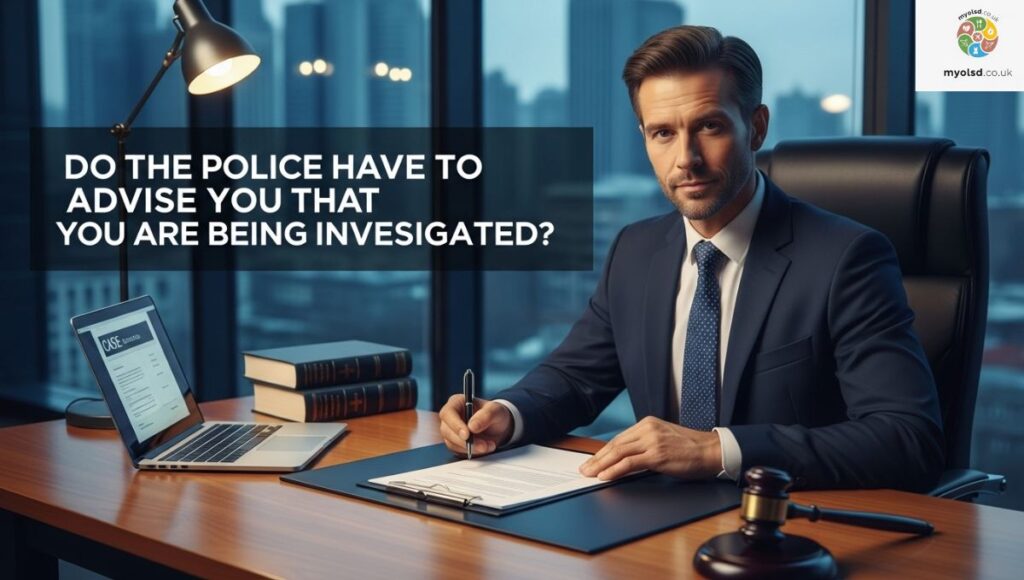
No. Police are not legally required to notify you if you’re under surveillance. In fact, covert surveillance works precisely because the subject doesn’t know they’re being watched. Law enforcement officials rely on secrecy to build evidence without interference.
While you may eventually be informed if charges are filed, the early investigation stage often happens quietly. This is why recognizing indirect signs is so important so you can take protective steps before the situation escalates.
What Are the Warning Signs That You Are Under Investigation?
Repeated police contact, unusual questions from strangers, and suspicious vehicles are all potential indicators. Social media surveillance and strange online requests can also be part of a broader investigation strategy.
Other warning signs include warrants being issued, your friends and family being questioned, or officers showing excessive interest in your financial records or daily activities. These are red flag signs that suggest police monitoring is underway.
The Police Contact or Visit You
Unannounced home visits or repeated phone calls from officers are not random. These visits are often attempts to gather information, test your reactions, or get you to make incriminating statements.
Always remember your right to remain silent and your right to legal representation. Never assume casual questions are harmless; they may be part of a larger investigation.
Law Enforcement Officials Contact Your Friends and Family
If your friends, relatives, or even workplace are approached by law enforcement with questions about you, it’s a strong sign you’re under investigation. Police often use indirect contact to gather details without alerting the subject directly.
This can feel invasive, but it’s a common tactic in surveillance operations. If you hear of officers asking about you, contact a criminal defense lawyer immediately.
The Police Are Engaging in Surveillance
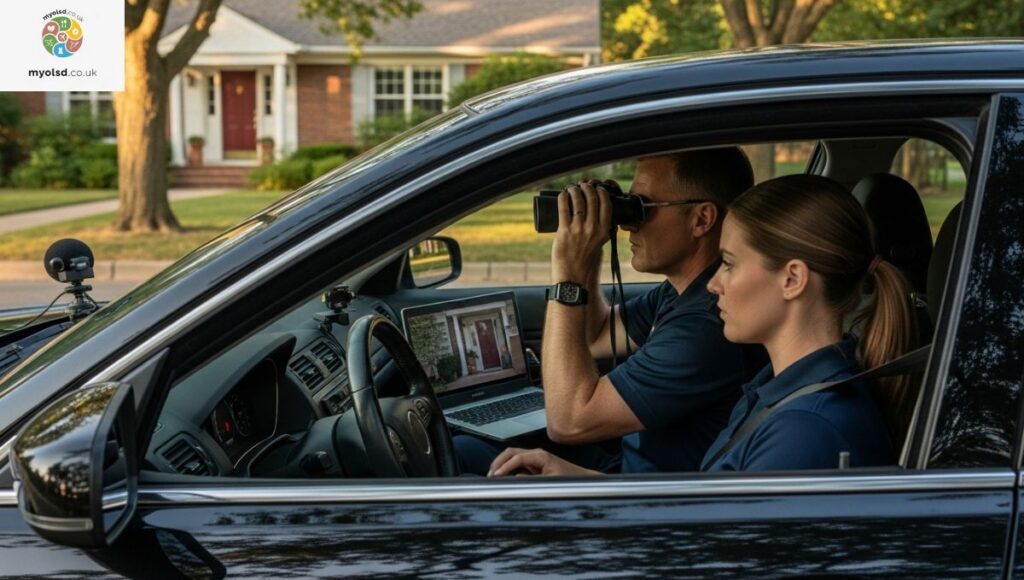
From unmarked cars to drones hovering near your property, law enforcement uses many surveillance methods. Sometimes, it’s as subtle as an unfamiliar face in the neighborhood; other times, it involves more advanced surveillance technology.
If you notice unusual wires, buzzing sounds, or strange equipment around your property, don’t ignore it. These could be signs of monitoring activities linked to a criminal investigation.
Warrants Are Issued
A search warrant is one of the clearest signs that you’re officially under investigation. Warrants allow police to search property, seize computers, or monitor phones legally.
If served with a warrant, do not resist, but also don’t consent to anything beyond what the warrant specifies. Immediately call your attorney for legal representation.
You Receive Strange Friend Requests
Digital surveillance often includes fake profiles or suspicious accounts on social media. If you suddenly get multiple friend requests from people you don’t know, especially with little personal information on their accounts, it could be part of online monitoring.
Be careful not to engage. Delete or block suspicious accounts and keep your information private.
Let Our Experience & Knowledge Help You Obtain The Best Possible Outcome For Your Unique Legal Situation.
Every investigation is different, and no two clients face the same risks. Our team tailors defense strategies to your specific circumstances, whether it’s surveillance evidence, direct police questioning, or digital monitoring.
We know how law enforcement works, and we know how to protect your rights. With decades of combined experience, we aim for the best possible outcome for every client we serve.
What Should You Do if You Believe You Are Being Investigated?
Stay calm, protect your privacy, and avoid any actions that could be misinterpreted. Do not discuss your concerns on social media or with casual acquaintances.
Most importantly, seek legal representation as soon as possible. An attorney can review your case, guide you through the pre-arrest stage, and help you avoid incriminating statements.
Are You Looking for a Criminal Defense Lawyer in Charlotte, NC?

If you’re in Charlotte, NC, and suspect you’re being monitored, our law offices provide skilled defense representation. From initial consultation to full case preparation, we’re here to protect your rights.
Our attorneys offer free case evaluations and have extensive experience in defending clients facing surveillance-based investigations. Don’t wait until charges are filed, get help early.
I. Unusual Police Presence
Seeing patrol cars circling your block more often than usual can be a red flag. While routine monitoring is common, frequent police presence near your home might indicate targeted observation.
If officers seem to appear at the same times you leave or return, or if they linger near your driveway, it may be part of suspect monitoring. Keep detailed notes of these patterns.
II. Surveillance Technology
Modern police surveillance includes drones, hidden cameras, and even advanced communication monitoring. Strange buzzing, unusual wires, or unidentified equipment around your home are signs of possible surveillance technology.
Though some of these devices are also used by private investigator agencies, their presence should not be ignored. Protect your home with security systems and privacy awareness.
III. Behavioral Observations
Law enforcement often observes suspects’ behaviors. This can include monitoring conversations, following suspects in public spaces, or noting suspicious movement patterns.
If you feel your daily routine is being watched closely, you may be experiencing behavioral monitoring. Trust your instincts and consult legal counsel for guidance.
IV. Increased Communication
If law enforcement suddenly starts calling you more often, requesting interviews, or visiting your property, this could be a sign of increased communication linked to surveillance activity.
Stay polite, remain silent about sensitive matters, and never agree to questioning without an attorney present. Protecting your rights during this stage is critical.
V. Legal Implications and Protecting Yourself
Surveillance has serious legal implications. In some cases, it may lead to search warrants, interrogations, or even criminal charges. Understanding your constitutional rights is essential.
Always remember: you have the right to remain silent, the right to refuse consent to warrantless searches, and the right to legal representation. Protecting yourself starts with exercising these rights calmly and consistently.
Read more Article:What Is the Color That Represents Friendship?
I Think I’m Under Surveillance
What are the different kinds of surveillance?
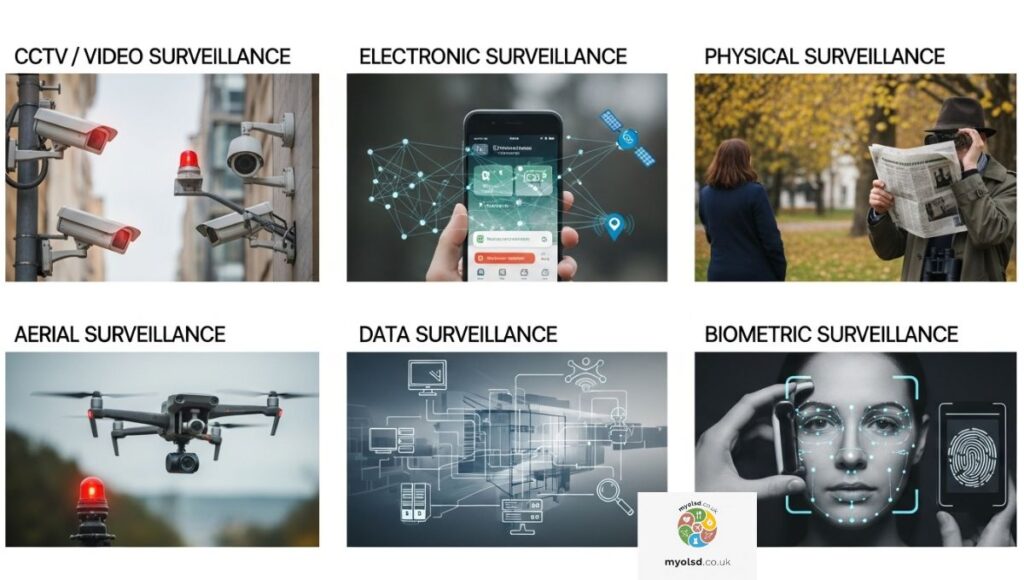
Surveillance can include bugging your car or premises, recording conversations, intercepting phone calls, or tracking your location. It may also involve public observation, directed surveillance, or intrusive monitoring inside your home.
Both police and intelligence services have legal powers to conduct surveillance, though authorizations differ depending on the method.
When is it lawful?
UK law, through acts like the Regulation of Investigatory Powers Act and Investigatory Powers Act 2016, allows lawful surveillance when necessary for national security, preventing crime, or protecting public safety.
Intrusive surveillance usually requires approval from a senior police officer or even the Home Secretary. Proportionality and necessity are key principles in authorizing such activities.
Directed surveillance
This type involves observing you in public, such as outside your home or workplace. Local authorities can also authorize limited forms of directed surveillance, but only for specific crimes.
Intrusive surveillance
Monitoring inside your home or private property falls under intrusive surveillance. This requires higher-level approval and stricter justifications, such as serious crime prevention.
Intercepting communications
This includes monitoring emails, texts, phone calls, or mail. Interception usually requires a warrant issued by the Home Secretary, ensuring the process is legally justified.
What are my rights?
Article 8 of the European Convention on Human Rights protects your right to privacy. While this right can be limited under certain conditions, it must always be done proportionately and lawfully.
You have the right to complain if you believe surveillance violates your human rights. Legal representation can help you challenge unlawful surveillance operations.
Can I complain about surveillance?
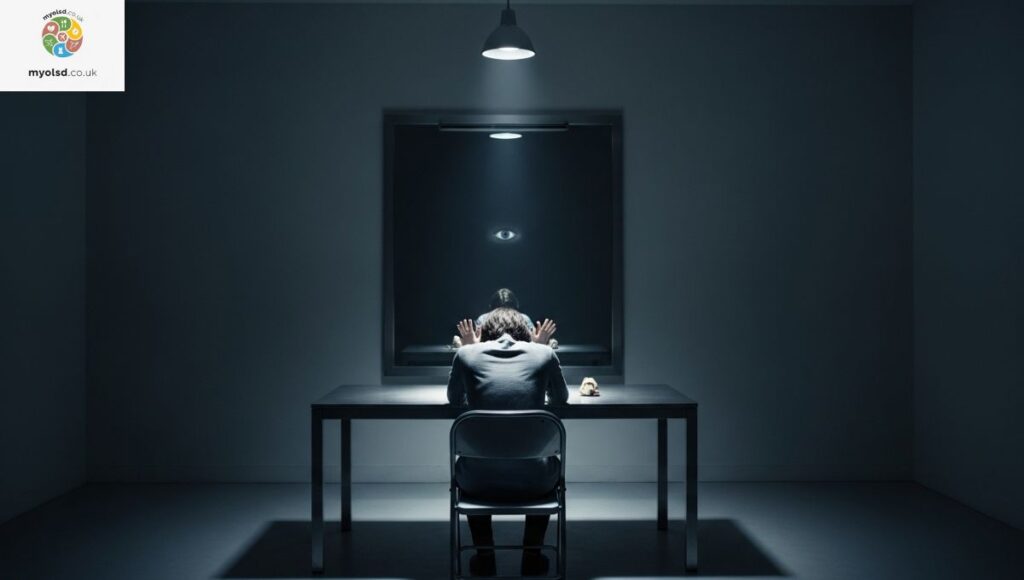
Yes. In the UK, you can file a complaint with the Investigatory Powers Tribunal. This body investigates unlawful surveillance and protects your rights under the Human Rights Act 1998.
Complaints are free to file, and you don’t necessarily need a lawyer, though attorney assistance can strengthen your case.
Tips
If you’re anxious about being watched, talk to your GP for support. Stress and anxiety are common when dealing with suspected surveillance.
Always stay calm, stay aware, and avoid rash decisions that could harm your legal position.
2. Unusual Photography Activity
If you see strangers taking pictures of your house, vehicles, or driveway, this could be part of surveillance. Police may use photos to document movement patterns or potential hiding spots.
Protect yourself by noting details of anyone acting suspiciously. Taking a photo back may even deter them.
3. Light Bulb Tampering
Outdoor lights suddenly not working? Someone may have tampered with them. Since burglars and surveillance teams both prefer darkness, always check your bulbs if they stop working unexpectedly.
4. Suspicious Vehicles
Cars that repeatedly circle your block, especially unmarked vans or vehicles with tinted windows, can be signs of surveillance. Write down license plates and driver descriptions.
5. Strangers Asking for Odd Favors
Be cautious if strangers knock on your door requesting odd favors like using the bathroom or phone. This could be an excuse to observe your property layout.
6. Unfamiliar Service Workers
Police surveillance sometimes involves impersonating utility workers. Always check IDs and call the company before letting anyone inside.
7. Markings on Your Property
Unusual chalk marks or stickers can be used to tag houses. While often linked to burglars, markings may also indicate surveillance interest. Remove them immediately.
8. Mysterious Flyers and Stickers

Flyers stuck on doors or windows could be a way to check if you’re home. If left untouched for days, it signals absence. Stay vigilant.
9. Unexplained Phone Calls
Repeated hang-up calls might be a tactic to confirm when you’re home. Log these calls and report suspicious patterns.
10. Dogs Barking at Strangers
Pets often sense suspicious behavior before humans. If your dog repeatedly barks at the same stranger or vehicle, pay attention.
11. Social Media Oversharing
Posting vacations or daily routines online makes surveillance easy. Limit personal details on public platforms to reduce risks.
Conclusion
Spotting potential surveillance can feel overwhelming, but awareness is your first defense. Whether it’s strange vehicles, odd social media activity, or direct police contact, the key is knowing your rights and acting calmly.
If you’re searching for clear signs that cops are watching your house, the points in this guide should give you a strong starting place. Always document what you see, avoid rash moves, and reach out to a criminal defense attorney if things feel serious. Protecting your privacy isn’t about paranoia; it’s about making smart, informed choices when you suspect law enforcement attention.
FAQs
How do you know if you’re being watched in your house?
Look for unusual signs like unfamiliar vehicles parked nearby, strangers lingering, or strange noises and devices. Keep a record of suspicious activity and consider installing security cameras.
How do you know if someone is trying to set you up with the police?
Be cautious if someone pressures you into illegal acts or records your conversations. Avoid incriminating statements and consult a lawyer if you suspect entrapment.
How do I know I’m being watched by the police?
Watch for repeated sightings of unmarked cars, unusual questions from strangers, or direct contact from law enforcement. Document patterns and seek legal advice.
What are the signs of an undercover agent?
They may ask personal or leading questions, appear frequently in your environment, or avoid revealing personal details. Their behavior may seem inconsistent or overly curious.
How do I spot an undercover cop?
Unmarked vehicles, vague identification, and repeated presence near you can be indicators. Stay calm and never engage in illegal activities to “test” them.
Why am I under surveillance?
Law enforcement may monitor you if they suspect criminal activity, are conducting an ongoing investigation, or are gathering evidence. If you’re unsure, consult a criminal defense attorney to protect your rights.

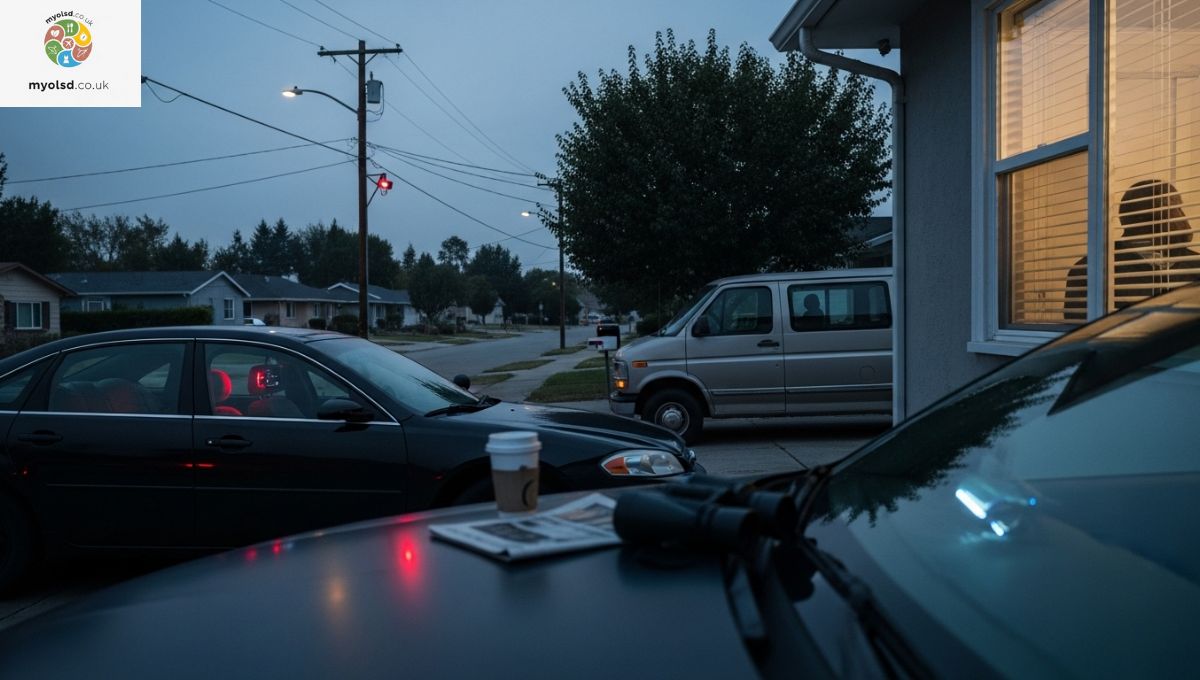
1 thought on “Signs That Cops Are Watching Your House”